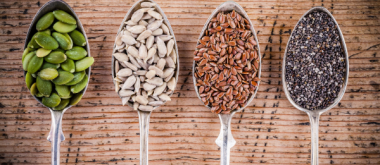Most will agree that consuming a nutrient-dense, well-balanced diet can lead to better overall health. But very few consume enough or any of the foods that meet such criteria. Instead, many people make poor food choices that ultimately take a toll on their physical and mental health. For the record, a nutrient-dense, healthy and all-around well-balanced diet, according to the Centers for Disease Control and Prevention (CDC), is one that is rich in fruits, vegetables, whole grains and lean proteins.
Foods with Negative Health Effects
Unhealthy foods, by comparison, are those that contain little in the way of nutrients. Some of these foods include frozen pizzas, microwaveable dinners, potato chips, crackers and deli meats. But it does not end there; many more fall under the same umbrella. To understand just how many, we need only look at an article published by the United States Department of Agriculture (USDA): In the article, researchers referred to all raw agricultural commodities that undergo processes that fundamentally alter their natural state as being “processed.” With that in mind, some of these processes include the following:
- Washing
- Cleaning
- Milling
- Cutting and chopping
- Heating
- Pasteurizing
- Blanching
- Cooking
- Canning
- Freezing and dehydrating
- Mixing
- Packaging
Dietary Choices and Aging Health: What You May Not Have Known But Probably Should

The long and short of it is that too much sodium can increase one’s risk of developing hypertension. It’s important to keep in mind, however, that consuming too many sugary foods can have the same consequences. Further, a diet high in sugar can cause inflammation, weight gain, diabetes and even nonalcoholic fatty liver disease (NAFLD). As far as heart health is concerned, several studies show that a diet high in saturated fats can cause cholesterol build-up in the arteries, a condition that often precipitates heart attack or stroke. The same applies to a diet high in trans fats. Lastly, while many might not give it much thought earlier on, a poor diet can gradually take a toll on skin appearance, say many dermatologists.
How an Unhealthy Diet Can Set the Stage for Premature Aging
If you’re at all concerned with aging health insofar as keeping your skin looking as youthful and as radiant as possible for as long as possible, it would be in your best interest to avoid too much unhealthy eating. The skin is the body’s largest organ. Like all organs, it requires the right kind of nutrients to perform and look its best. That said, consuming a well-balanced, nutrient-dense diet can help in this regard. Of course, the inverse is also true for those who consume an unhealthy diet. This is substantiated in a study published by the National Institutes of Health, the world’s largest biomedical research agency. According to researchers and scientists involved in the study, nutritional imbalances and poor eating habits are among the more common causes of premature aging of the skin. These two factors deprive the skin of proteins, vitamins, minerals and other nutrients that would otherwise keep it looking youthful and radiant.
Final Thoughts on Diet and Aging Health
All in all, the foods we consume can affect us in both positive and negative ways. While we don’t necessarily have to eliminate processed, sugary and salty foods from our diet entirely, they should make up the minority and not the majority of the foods we consume. Following this philosophy can go a long way toward fending off many of the tell-tale signs of aging for that much longer.





